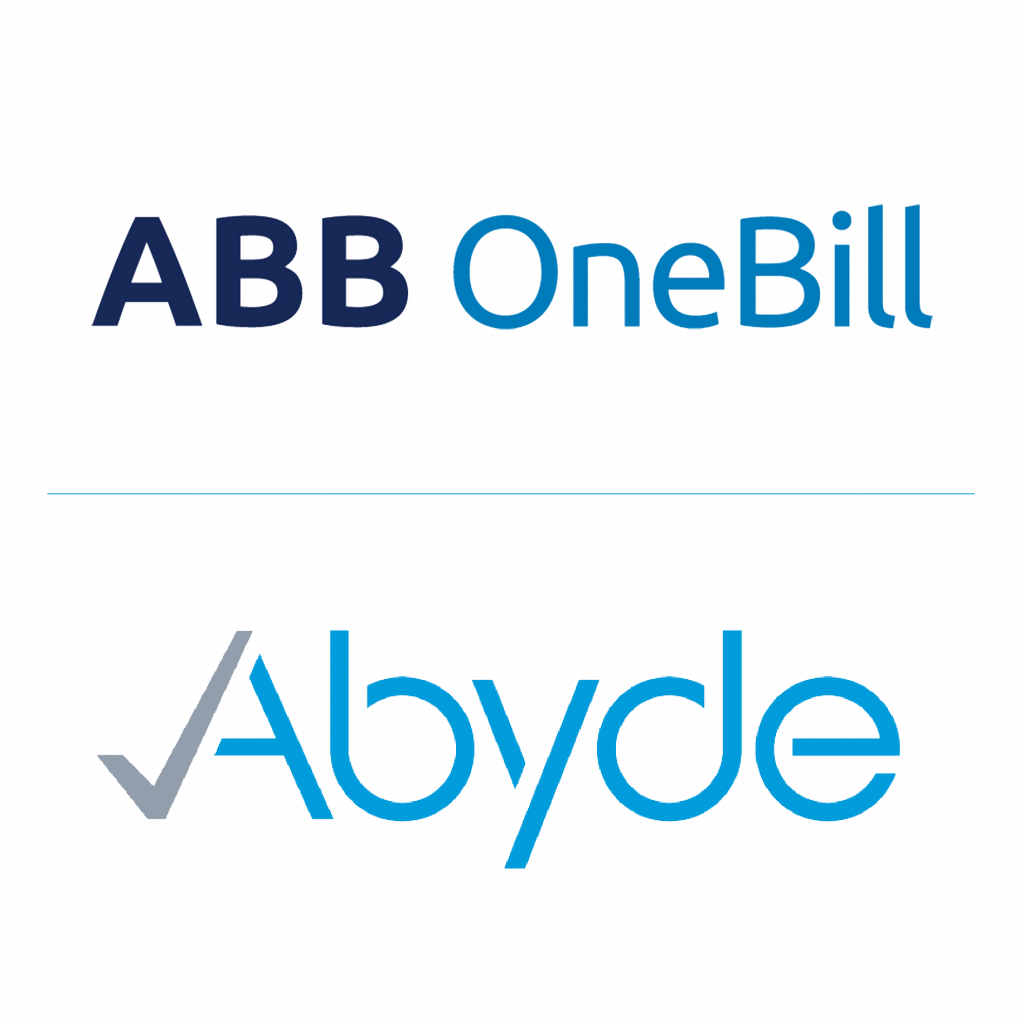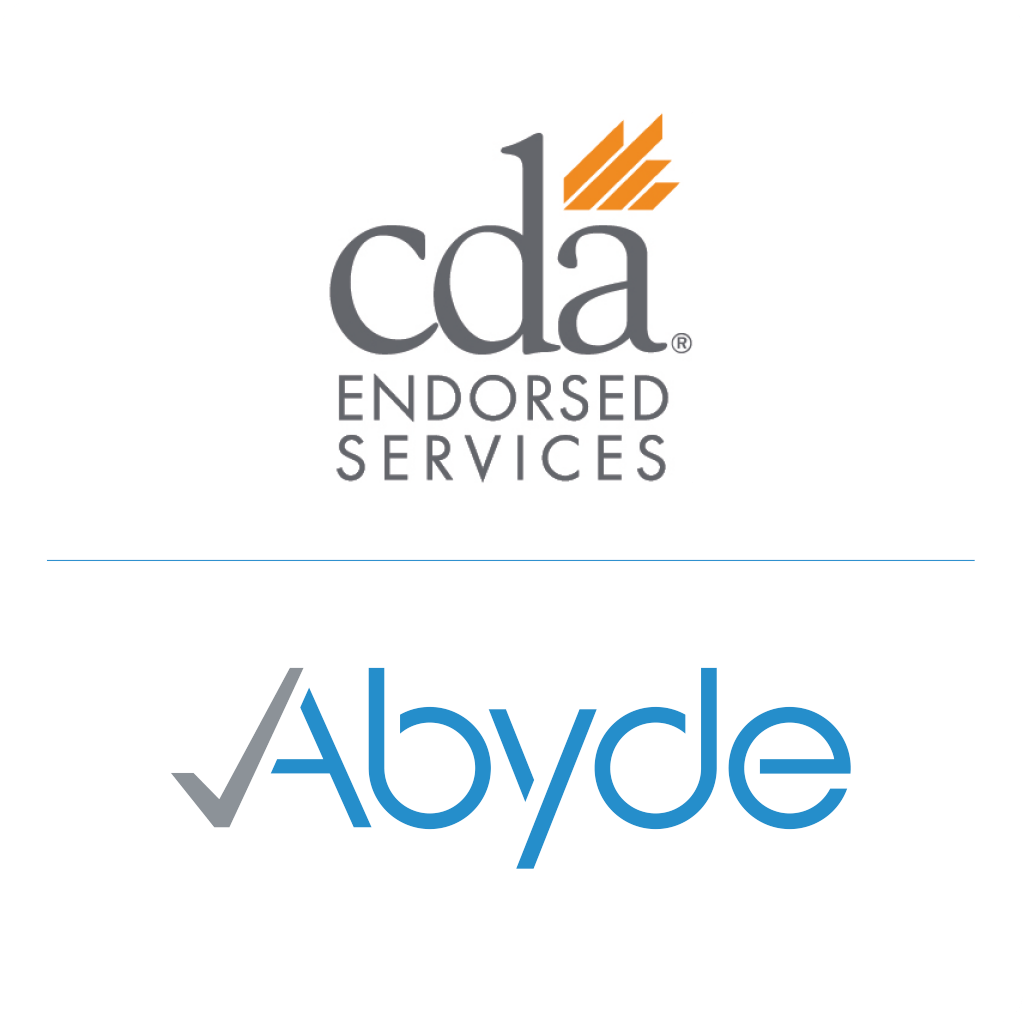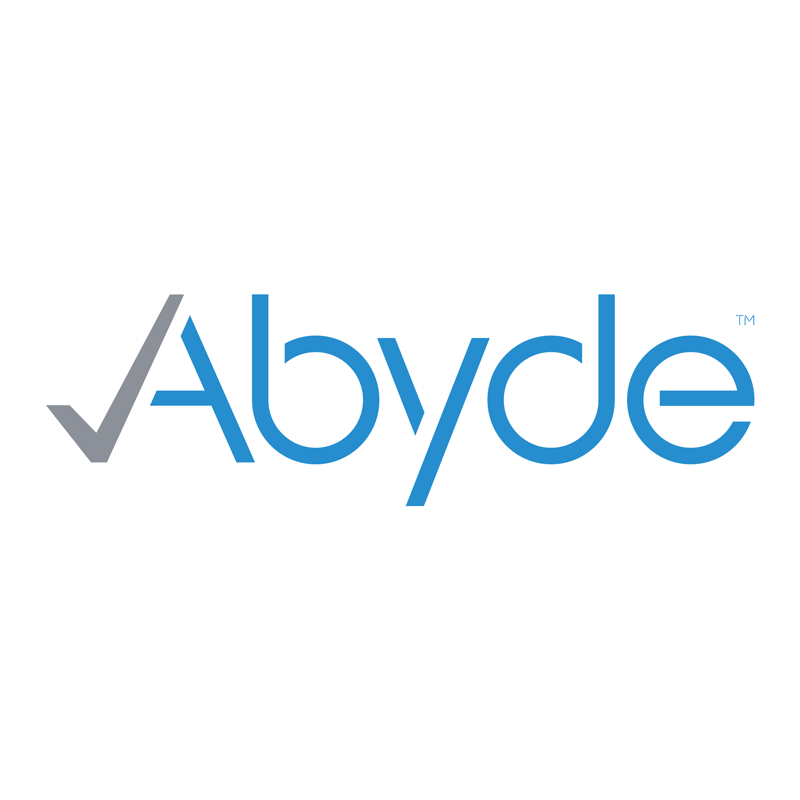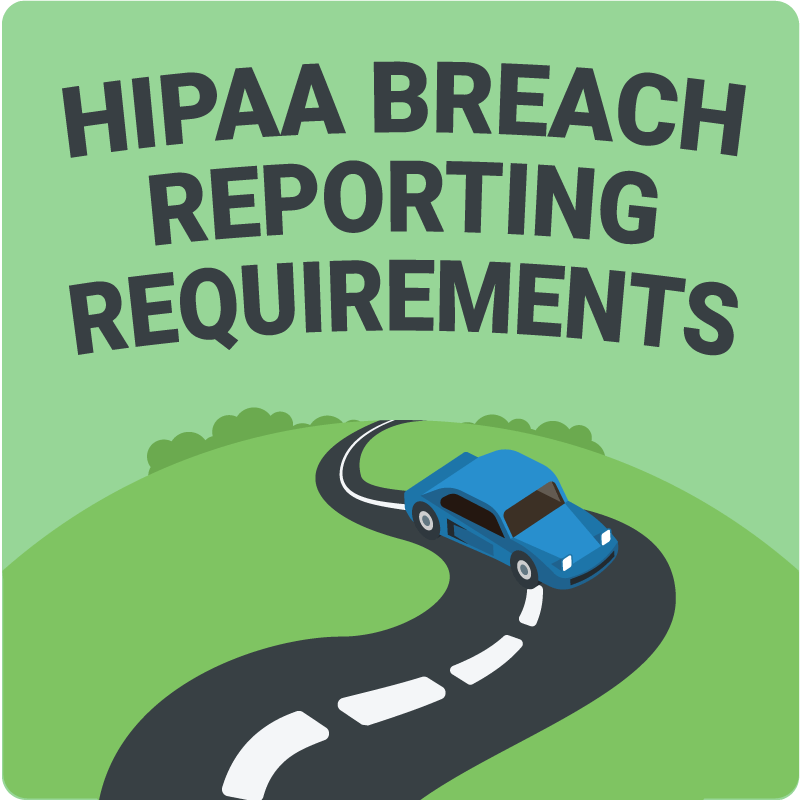August 1, 2022 Industry-leading compliance solution provider Abyde announces their latest partnership with ABB OneBill, offering a complete user-friendly HIPAA program to ABB OneBill’s members. Abyde is delighted to announce its new collaboration with ABB OneBill. The Abyde software solution is the easiest way for any sized eye care practice to implement and sustain comprehensive HIPAA compliance programs. We offer ground-breaking software that assists optometrists in prioritizing their compliance processes. In addition to our cutting-edge software solution, Abyde provides live Master Classes and exceptionally qualified HIPAA specialists to assist ABB customers in expanding their industry understanding. Abyde’s revolutionary approach to HIPAA compliance guides practices through mandatory HIPAA requirements such as the Security Risk Analysis, HIPAA training for doctors and staff, managing Business Associate Agreements, dynamically generated policies, and more. As industry leaders, the software equips practices with the tools and support necessary to experience stress-free compliance. “We are thrilled to welcome ABB OneBill to our network of partners,” said Matt DiBlasi, President of Abyde. “We have extensive experience in the eye care space and look forward to sharing our expertise with the members of ABB OneBill for years to come!” “Abyde gives our members a truly user-friendly approach to HIPAA compliance,” said Jill Stephenson, head of vendor partnerships at ABB OneBill. “Members will love the friendly user-interface, step-by-step questions, and timely reminders. Abyde also provides personalized HIPAA documentation and forms, historical tracking and support in the event of an audit, and more. Plus, we appreciate Abyde’s support of our member education. Our team is delighted to partner with Abyde and as our members come to know Abyde and their platform, we believe they will feel the same way.” About Abyde Abyde (Tampa, FL) is a technology company dedicated to revolutionizing HIPAA compliance for medical professionals. Launched in January 2017, Abyde was formed with the idea that there could exist an easier, more cost-effective way for healthcare providers to comply with government-mandated HIPAA regulations. For more information on Abyde visit abyde.com. About ABB OneBill About ABB OneBill: Founded in 1984 by a small group of private optometrists, ABB OneBill is a division of ABB OPTICAL GROUP focused on enhancing the independent professional optometrist’s ability to compete in a rapidly changing marketplace. This includes providing a consolidated billing service, favorable purchasing arrangements, vendor discounts and programs, business management and marketing support, quality educational programs for practitioners and staff, medical billing services via a 3rd party, and other support services as requested by members. For more information, visit AbbOneBill.com. Read the full press release here.
OCR Announces Eleven More HIPAA Right of Access Settlements
July 18, 2022 Waking up every morning is an eye-opening experience. Do you know what else is an eye-opening experience? Waking up to see all of the enforcement investigations the OCR launched against practices like yours. The U.S. Department of Health and Human Services (HHS) Office for Civil Rights (OCR) announced the completion of eleven investigations in its Health Insurance Portability and Accountability Act (HIPAA) Right of Access Initiative. Under the HIPAA Privacy Rule, the OCR launched this effort to assist individuals’ right to timely access to their health records at a reasonable cost. HIPAA provides individuals with the right to view and get copies of their health information from their healthcare providers and health plans. A HIPAA-regulated entity has 30 days after receiving a request to provide an individual or their representative with their records in a timely manner. OCR Director, Lisa J. Pino, states, “Health care organizations should take note that there are now 38 enforcement actions in our Right of Access Initiative and understand that OCR is serious about upholding the law and peoples’ fundamental right to timely access to their medical records.” Practices are no longer sneaking under the radar! The Office for Civil Rights (OCR) just concluded its thirty-eighth enforcement action since the HIPAA Right of Access Initiative began in 2019. Totaling over $646,000 across eleven penalties, the announcement of the verdicts includes eleven cases. Here is a brief breakdown of a couple of the cases just released by HHS: The first dental action includes a $5,000 settlement for failure to comply with the Right of Access provision stating covered entities must permit individuals to inspect and obtain a copy of their PHI. An eye care practice made the mistake of not providing a copy of a patient’s medical records until three days after the OCR investigated. Now that is crazy! To settle a potential violation of the HIPAA Privacy Rule right of access standard, the practice agreed to take corrective actions and pay $22,500. Something as simple as not giving your patients access to their data quickly enough can result in a huge fine! One not-for-profit health system learned the hard way by not responding timely enough to a complainant’s access request. This cost the health system a whopping $240,000! So, whether it’s responding to a request or delivering that request on time, you need to make sure your practice is on point to avoid these heavy penalties. As we can see the queen bee (Lisa Pino) isn’t joking around on pushing the OCR’s HIPAA Right of Access Initiative across practices, we encourage you to ensure you have the right HIPAA compliance measures in place. So what’s the holdup? For less than a scratch-off ticket a day you can save your practice from those sneaky fines and become friends with Abyde today!
Oklahoma State University – Center for Health Services Forks Over $875,000 to Settle Hacking Breach
July 15, 2022 What did the duck say when she went to buy lipstick? Put it on my bill! Speaking of bills (the money kind, not a beak), Oklahoma State University had to pay a huge bill of $875,000! It acts as a settlement for a huge hacking breach of the OSU CHS web servers. Oklahoma State University has agreed to pay the price and complete a corrective action plan over the next two years to resolve all of the violations of the Breach Notification Rules, Security, and HIPAA Privacy. OCR received a breach report in 2018 due to the hacking of the OSU’s web servers. They discovered that the hacker of this breach had access to 279,865 individuals’ electronic protected health information (ePHI). OSU found that the hackers had access to patients ePHI earlier than they originally thought, on March 9th, 2016. OCR Director, Lisa J. Pino, states, “HIPAA-covered entities are vulnerable to cyber-attackers if they fail to understand where ePHI is stored in their information systems.” As technology in the healthcare business evolves, it is critical to understand how to appropriately secure personal health information (PHI) when being stored or sent. With cybersecurity dangers on the rise and electronic communication becoming more widespread, it’s imperative to secure your patients’ data. Encryption services are an excellent method to safeguard your practice and avoid those sticky HIPAA violations. Good news for you, you don’t have to be a sitting duck! (Cough, Abyde.) The OCR reported that OSU failed to follow the HIPAA rules by: Unfortunately for the Cowboys, their failure to maintain proper security, risk analysis measures, and documentation of compliance cost them a large fine and put all of the OSU patients ePHI at risk. This breach, and corresponding financial settlement, highlight that even for huge organizations like OSU, the right risk analysis practices and HIPAA-compliant policies are a must in order to prevent impermissible safeguarding or access to ePHI. Even as an independent practice, you may not feel like you have anything in common with a big fish like OSU. No matter if you’re a duck, fish, or cowboy, it doesn’t matter – everyone is monitored and at risk. As the penalties for these violations become more severe, it is more crucial than ever to ensure that your practice has a solid HIPAA program in place.
HHS’s Recent HIPAA Guidance on Telehealth and Public Health Emergency Expiration
July 11, 2022 Think you finally got the hang of telehealth? Don’t get too comfy just yet! The OCR recently released guidelines on how covered health care providers and health plans should utilize their remote communication technology to deliver audio-only telehealth services while also complying with HIPAA requirements. Why is Telehealth important? Let’s start at the beginning. Telehealth contributes to increasing a practice’s value and security by expanding access to health care across the nation and providing certain users who have difficulty using audio and video telehealth technologies. When systems are not properly secured, they pose risks to patient safety, health, and data. Cyberattacks and ransomware are extremely common in Telehealth and may quickly create issues that disclose medical information and other sensitive information. As a practice, it is critical and worthwhile to maintain excellent Telehealth especially now a days with the increased funding and resources the OCR has available. OCR Director, Lisa J. Pino, states, “Audio telehealth is an important tool to reach patients in rural communities, individuals with disabilities, and others seeking the convenience of remote options. This guidance explains how the HIPAA Rules permit health care providers and plans to offer audio telehealth while protecting the privacy and security of individuals’ health information.” With the OCR’s Telehealth Notification system possibly being taken down as early as July 15th, 2022, we recommend that practices stay alert and take every precaution by using your friendly, easy to use HIPAA-compliant software (hint Abyde) to assure full compliance today. The first step in remaining alert is to follow the guidance issued by the OCR in response to the recent news that the Telehealth Notification system may be shut down. The guidance below specifies the conditions under which telehealth may be utilized. The HHS is authorizing HIPAA-covered businesses to conduct telehealth and audio-only services using remote communication technology. However, these services must be provided in a private environment to the best of the entity’s abilities, and the individual’s identification must be verified. Even though HIPAA does not apply to audio-only telehealth services delivered through electronic communication methods, when offering telehealth services through mobile devices or applications, practices may face HIPAA compliance issues. Therefore, practices should identify all potential risks and vulnerabilities to PHI confidentiality as part of the risk analysis process prior to the completion of the PHE. Abyde will do anything possible to make sure you’re on top of your compliance game because the OCR may show up at any time! Allow us to guide you through these future changes – from our incredibly simple software to our readily available education, we will be your buddy in ensuring that you are prepared for any obstacles that show up at your door.
California Dental Association and Abyde partner to deliver HIPAA compliance to dental care professionals
June 24, 2022 Industry-leading compliance solution provider Abyde announces partnership with California Dental Association and its 27,000 members. California Dental Association (CDA) and Abyde’s recent decision aims to alleviate some of the unique challenges private practices face that impede their patient-first focus. Providers are often overlooking all that HIPAA requires and the time needed to manage and review associated policies and procedures. Abyde solves this problem by streamlining all the processes and taking the guesswork out of compliance. The Abyde software solution is the easiest way for any sized dental practice to implement and sustain comprehensive HIPAA compliance programs. Already used by thousands of practices across the country, Abyde’s revolutionary approach guides practices through mandatory compliance requirements such as the implementation of risk management programs, training for doctors and staff, customized policy documentation, and more. “California Dental Association is an excellent addition to our partners as we continue to grow,” said Matt DiBlasi, president of Abyde. “As we think about what is important to our customers, simplicity and transparency are at the forefront of everything we do. Knowing that CDA holds the same values for its members solidifies our partnership.” “As a CDA Endorsed Service, Abyde will support our members with handling the business side of their practices, so they can focus on providing excellent dental care to their patients,” said Ariane Terlet, DDS, president of the California Dental Association. About California Dental Association The California Dental Association is a nonprofit organization representing organized dentistry in California. Founded in 1870, CDA is committed to the success of our members in service to their patients and the public. CDA also contributes to the oral health of Californians through various comprehensive programs and advocacy. CDA’s membership consists of more than 27,000 dentists, making it the largest constituent of the American Dental Association. For more information, visit cda.org. Read the full press release here.
MORE MONEY, MORE PROBLEMS? OCR Budget Proposal Will Result in Greater Enforcement and More Fines
May 16, 2022 If you think the Department of Health and Human Services (HHS) Office for Civil Rights (OCR) isn’t zeroed in on compliance, think again. OCR recently announced its request for a 55% increase in its overall funding, for a total of $60.2 million for the 2023 fiscal year. While this number may seem shocking, their plans for the money may make your jaw drop. Let’s take a look at why the increase is needed. Nearly 46,000 complaints were received in FY 2021, a dramatic increase from nearly 2,000 in 2003. Just this year, they’re expecting more than 28,000 related strictly to HIPAA. OCR states, “given the trend in complaints to OCR as well as the priorities articulated by the Administration, OCR anticipates a significant increase in the number of civil rights, information breaches, and cybersecurity complaints.” OCR opens an investigation for any breach that affects more than 500 people. In 2021, there were 714 of those instances, more than 30% growth over the last two years. Currently, OCR is limited to how many of these they can conduct a full investigation on. Imagine how powerful this could be if granted the resources to execute the necessary amount?! In addition, OCR is looking to add more regional investigators to address the backlog of existing complaints. With a goal of clearing the backlog by FY 2026, $8 million will be allocated to address the existing complaint inventory. OCR supports adding new regional investigators to “resolve new civil rights and HIPAA cases, address the backlog of complaints, and initiate compliance reviews in the Administration’s priority areas.” With a staff of 77 in 2020, they plan to add an additional 37 investigators and supervisory investigators in FY 2023. The budget accounts for a total increase of 64%, equating to 91 new employees. More staff could mean more knocks on your door! Still think that you’re the one that got (or will get) away?! This next bit is for you. Increasing fines and the institution of injunctive relief are more immediate than 2023. Not sure what a HIPAA violation could cost you? Don’t go get a tattoo of these any time soon – OCR is requesting increases based on a federal court evaluation. In 2019, then-OCR Director Roger Severino published a “notice of enforcement discretion” complementing the HITECH Act basing violation amounts on the party’s awareness and fault. While you could imagine this leaves some room for interpretation, the tiered fine structure will remain in place. Changing lanes, Injunctive relief essentially restrains a party from a certain action. OCR regulator, Adam Greene openly notes the HITECH Act “provides attorneys general with authority to seek injunctive relief.” Green continues to state, “If OCR were given authority to obtain injunctive relief, then it could require entities to take or discontinue actions –such as by requiring an entity to provide an individual with access to records or to discontinue a use or disclosure of protected health information – rather than only being able to penalize the entity after an act or omission occurs.” If you still aren’t convinced that OCR means business, let’s wrap up with a summary of what their request for extra dollar signs means for you. An increase in budget simply equates to an increase in resources – more employees to not only attack the existing backlog but the ability to complete more in-depth and frequent investigations. Higher fines and more meaningful corrective action plans mean greater penalties and violation costs. We hope you take your compliance seriously, OCR certainly is! Let us navigate these upcoming changes with you – from our simple software to our readily available education, we will be your companion in confidence that you are set up for any OCR changes that come our way.
Dentistry HIPAA Fines
March 29, 2022 Dental practices are no longer flying under the radar! The Office for Civil Rights (OCR) just concluded its twenty-seventh enforcement action since the HIPAA Right of Access Initiative began in 2019. Totaling over $170,000 across four penalties, the announcement of the verdicts includes two cases as part of the HIPAA Privacy Rule. The additional actions related to the disclosure of patients’ protected health information (PHI). Here is a brief breakdown of the three dental cases just released by HHS: The first dental action includes a $30,000 settlement against the initially cited $104,000 for failure to comply with the Right of Access provision stating covered entities must permit individuals to inspect and obtain a copy of their PHI. Nearly two-and-a-half years from the time of citation, the practice has completed a package of action plans, creating a costly and lengthy resolution process. Something as simple as Google review responses can get you fined! One provider learned the hard way the dos and don’ts of reputation management. A patient filed a complaint with the OCR after the provider included the patient’s full name and PHI in their review response. This cost the practice a whopping $50,000! Not the usual politician slip up, but a recent provider running for office learned not to mix business and pleasure. As part of his political campaign, the provider shared names and addresses of over 5,000 patients with both his campaign manager and third-party marketing partner to distribute letters and emails. Resulting in a final citation of $62,500, this surely put a roadblock on his campaign trail! As we see the OCR cracking down on their HIPAA Right of Access Initiative across dental practices, we encourage you to ensure you have the right HIPAA compliance measures in place. With an hour of your time, we will get you everything you need. How much is an hour of your time worth – we bet it’s not $170,000!
Leading the Way in HIPAA Education, Abyde Receives PACE and COPE Approval
March 8, 2022 Abyde is proud to announce that they have officially received the Academy of General Dentistry (AGD) Program Approval for Continuing Education (PACE). This approval comes in addition to their qualification for offering the Council on Optometric Practitioner Education (COPE) live and virtual courses – further cementing themselves as the preeminent source for comprehensive, yet simple, educational content. As an organization composed of HIPAA experts and thought-leaders, receiving PACE and COPE approval is another integral step for Abyde towards helping independent providers navigate the complexities of compliance. Abyde’s mission has always put education at the forefront and they are thrilled to get the opportunity to share their message with an even greater audience. “As an organization, we are passionate about delivering an educational message that is relevant and easy to follow for medical practices of all sizes,” asserted Abyde’s President and Co-founder, Matt DiBlasi. “Our latest approvals by PACE and COPE are additional validation for our industry leading, educational-first approach.” Abyde’s engaging content helps to simplify otherwise complicated and convoluted government requirements in a way that’s easy to digest. By defining practice roles and responsibilities, as well as providing guidance for actually achieving complete compliance, Abyde hopes to bring peace of mind in the fact that HIPAA doesn’t have to be all that confusing. While the PACE approval and COPE qualification are two exciting milestones in their ongoing mission, when it comes to sharing valuable education within the healthcare space – this is only just the beginning. Abyde looks forward to providing several courses in the coming months and helping to make HIPAA compliance easy to understand and truly stress-free. Read the full press release here.
The Road to Meeting HIPAA Breach Reporting Requirements
February 23, 2022 Accidents happen, no matter how careful you try to be. That’s why a safe driver can find themselves in a fender bender and a “cyber-secured” healthcare practice can fall victim to a data breach. Without complete control over everything and everyone, there’s a risk we take just by connecting to the internet or getting behind the wheel. But while the 89% of providers who’ve experienced a cyberattack (and vast-majority of Florida drivers) have proven that you can’t always put the breaks on unpredictability – having an incident response plan in place helps to reduce the impact should an incident occur. So just as you wouldn’t flee the scene to turn a minor rear-end into a major hit and run, meeting HIPAA’s reporting requirements are key in preventing a minor breach from having major implications on your organization. Now whether you’re amongst last year’s 71% increase in healthcare data breaches, or just looking to take your breach response plan for a test drive, steering your practice in the right direction starts with understanding your responsibilities under the HIPAA Breach Notification Rule. Assessing the Breach Anything from an accidental mass email to a targeted ransomware attack can trigger a potential data breach. But the same way backing into a curb doesn’t necessarily warrant a police report, not every disclosure of protected health information (PHI) qualifies as a reportable breach. According to the Department of Health and Human Services (HHS), an impermissible use or disclosure of PHI is presumed to be a breach unless the organization can determine that there is a low risk of the patient information being compromised. Properly assessing the scope of the situation helps in figuring out what type of data was exposed, who exactly was impacted, and how you should best handle the next steps. Determining the risk level can be done with the help of our related article: What to Assess in a Possible HIPAA Breach Notifying the Right People Once you’ve assessed the breach, it’s time to get your apology letters en-route to the impacted patients. HIPAA requires covered entities to provide individual notifications “without unreasonable delay and in no case later than 60 days following the discovery of a breach.” The specifics of what should be included in individual breach notifications can be found in our related article: What is the Breach Notification Rule? Reporting in a Timely Manner Considering the fact that 60-80% of data breaches go unreported, notifying the HHS (and any additional state-specific parties if applicable) is an essential step that is too often missed. HIPAA law drives home some pretty specific reporting timeframes that require: The HHS has made it clear just how important timely notification is in reducing penalties resulting from a breach and has levied several fines, including a $2 million settlement with a hospital, for failing to report on time. So regardless of the number of people impacted, once a breach has been assessed and individual notifications have been sent, we recommend setting the HHS Breach Reporting Web Portal as your next destination. Documenting in Entirety Another step that practices too often speed past is documenting their breach response in entirety. With documentation usually taking the driver’s seat when it comes to proving the action your practice has taken in handling an incident, it’s important to keep a record of the breach analysis and reporting process for up to six years following the incident. Mitigating Further Risk And finally, whether it’s enhancing staff training, implementing stronger safeguards or just ensuring that your patient’s security remains a top priority moving forward – handling a data breach means mitigating whatever fueled it in the first place and taking measures to prevent any future incidents from happening down the road. Some final words of advice? If you have experienced a breach in 2021 and have yet to report it – you should probably get the pedal to the metal before the deadline passes. And if you haven’t experienced a breach and want to keep it that way, having a complete HIPAA and security program are great places to start. So while accidents aren’t always predictable or preventable, having safety measures in place – whether it’s a seatbelt or technical controls – can reduce your risk of an incident and help minimize the damage if there is. Because when it comes to protection, it pays to go the extra mile – especially when there’s a solution out there like Abyde that puts your practice’s compliance on cruise control.
The National Institute of Standards and Technology (NIST) Updates Guidance on HIPAA Compliance Rules
July 29, 2022 You know that exciting feeling when apps have an update that adds awesome new features?! It’s like Christmas morning over here for us at Abyde. The National Institute of Standards and Technology (NIST) just updated its guidelines and added an awesome new feature! After six years, NIST made a significant update by providing guidance to HIPAA-covered entities to follow the HIPAA Security Rule in order to better safeguard patients’ personal and protected health information. Read below to find out what changes were made to the guidelines. The revised guidance connected HIPAA Security Rule items to NIST Cybersecurity Framework subcategories. The advice remains mostly unchanged, with a few minor structural changes and a renewed emphasis on risk assessments and risk management. NIST Cybersecurity Specialist, Jeff Marron states, “We provide a resource that can assist you with implementing the Security Rule in your own organization, which may have particular needs. Our goal is to offer guidance and resources you can use in one readable publication.” NIST recommended the following guidelines for practices: NIST Cybersecurity Specialist, Jeff Marron also stated, “The identification of vulnerabilities or conditions that a threat could use to cause impact is an important component of risk assessment. While it is necessary to review threats and vulnerabilities as unique elements, they are often considered at the same time,”. It is important to note that HIPAA and cybersecurity operate best as a team, and a practice with both will operate smoothly. We all understand the need of HIPAA compliance, but practices must also understand the importance of cybersecurity. The more funding and resources allocated to IT security employees, the better off the firm will be when cyber dangers eventually arise. Satisfying HIPAA and cybersecurity regulations is critical to safeguarding your practice and patients from a data breach or HIPAA violation. While these are undoubtedly items that should be emphasized regardless of the government’s spending intentions, the suggestions by the government and NIST add a sense of urgency to ensuring that these vital protections are in place. With the increasing frequency of cyberattacks going on nowadays, ensuring HIPAA compliance is more important than ever. We were chatting with our Partner, Darkhorse Tech, and they talked about how HIPAA compliance services provide a framework for security (essential for any dental business), but they do not provide a proactive response to cyber threats. Instead, they provide preventative methods to safeguard your data and keep you in compliance. So in order to have everything covered your practice needs to adopt an additional layer of security, you should no longer rely exclusively on low-quality anti-virus software to defend you. By enlisting the help of specialists who are actively working to prevent an attack before it occurs, reacting to any threats in real-time, and staying up to speed on the current and impending dangers, you can shift your security measures from preventative and reactive to proactive. Darkhorse Tech CMO, Brian Ash, states, “The latest updates to HIPAA make compliance, reporting, and cyber security even more vital for our clients. While we have been recommending the addition of Abyde for HIPAA compliance for some time, the new guidelines make now the time to commit. Along with Abyde’s software we are making the addition of a Security Operations Center (SOC) our top priority. We vetted many options but are recommending Blackpoint Cyber as our SOC of choice.” As we can see, the NIST provided a great update to their Quizlet so that your practice can maintain a good grade in compliance school. So, I think it is time to take a step back and review that NIST guidance so that your practice can always pass the exam! So ensuring that you’re adequately securing this data begins with a thorough knowledge of what needs to be secured and that’s why we have the ideal study partner for you (Abyde) to assist you with all of your compliance needs!









